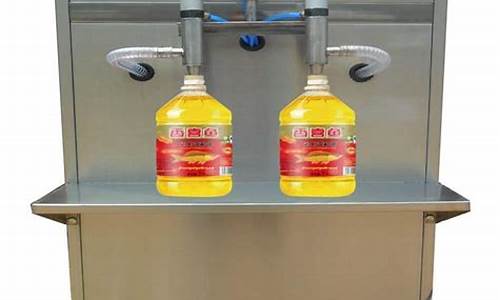In the realm of beverage production, bulk water filling machines play a crucial role in ensuring efficient and precise packaging. With the demand for bottled water soaring globally, businesses are increasingly investing in these machines to streamline their operations. This article delves into the factors influencing the prices of bulk water filling machines and provides a comprehensive guide to understanding the cost variations in this sector.
Factors Affecting Bulk Water Filling Machine Prices
The cost of bulk water filling machines can vary significantly based on several key factors. First and foremost, the capacity of the machine is a major determinant. Machines with higher filling capacities generally come at a higher price. These machines are designed to handle large volumes, making them ideal for high-production environments. Additionally, the level of automation plays a crucial role in pricing. Fully automated systems, which offer advanced features such as automatic capping, labeling, and packaging, tend to be more expensive compared to semi-automatic or manual systems.
The complexity of the machine’s design also impacts the cost. More sophisticated machines with additional features such as precise volume control, integration with other processing units, and advanced hygiene measures are priced higher due to their enhanced functionality and technology. Furthermore, the material quality used in the construction of the machine influences the price. Machines made from high-grade stainless steel or other durable materials are more costly but offer greater longevity and reliability.

Types of Bulk Water Filling Machines and Their Costs
There are various types of bulk water filling machines available, each suited to different needs and budget ranges. The primary types include gravity filling machines, piston filling machines, and rotary filling machines.
Gravity filling machines are often the most affordable option, suitable for less viscous liquids like water. They operate on the principle of gravity, allowing the liquid to flow into bottles or containers without the need for complex mechanisms. These machines are ideal for smaller-scale operations or businesses with lower production demands.
Piston filling machines, on the other hand, offer higher precision and are suitable for more viscous liquids. They work by drawing a specific volume of liquid into a piston and then dispensing it into containers. While they are more expensive than gravity fillers, they are preferred for their accuracy and consistency in filling.
Rotary filling machines are designed for high-speed production and are typically used in large-scale operations. These machines can handle a high volume of containers per hour and are equipped with advanced features for automation and efficiency. Consequently, they are the most expensive type of bulk water filling machine, but they offer unmatched productivity and reliability for high-demand scenarios.
Evaluating the Total Cost of Ownership
When assessing the cost of bulk water filling machines, it's essential to consider not just the initial purchase price but also the total cost of ownership. This includes installation costs, maintenance, and operational expenses. Some machines may require specialized installation services, which can add to the initial cost. Regular maintenance is also necessary to ensure the machine's longevity and optimal performance. This may involve periodic servicing and replacement of parts, which can contribute to ongoing costs.
Operational expenses, such as energy consumption and labor, should also be factored in. More advanced machines, while efficient, may have higher energy requirements or necessitate skilled operators for optimal use. It’s important to evaluate these factors to determine the overall cost-effectiveness of the machine.
In conclusion, understanding the pricing of bulk water filling machines involves examining various factors, including machine capacity, automation level, and design complexity. By considering these elements and evaluating the total cost of ownership, businesses can make informed decisions that align with their production needs and budget constraints. Investing in the right bulk water filling machine can significantly enhance operational efficiency and contribute to the overall success of a beverage production enterprise.






























